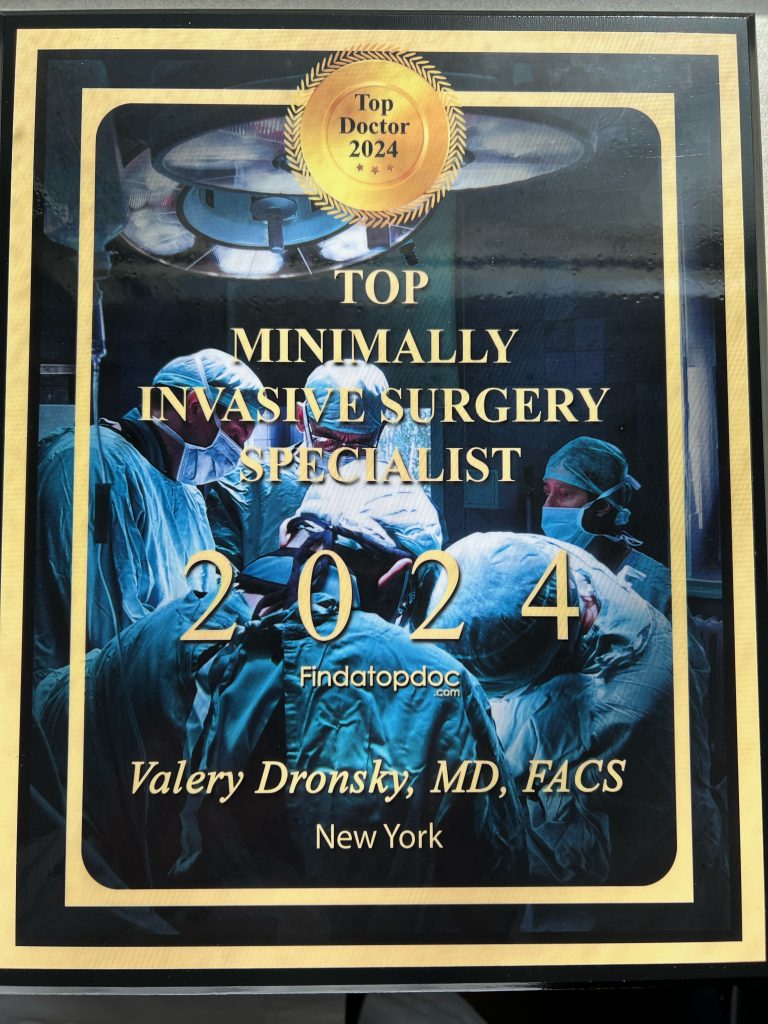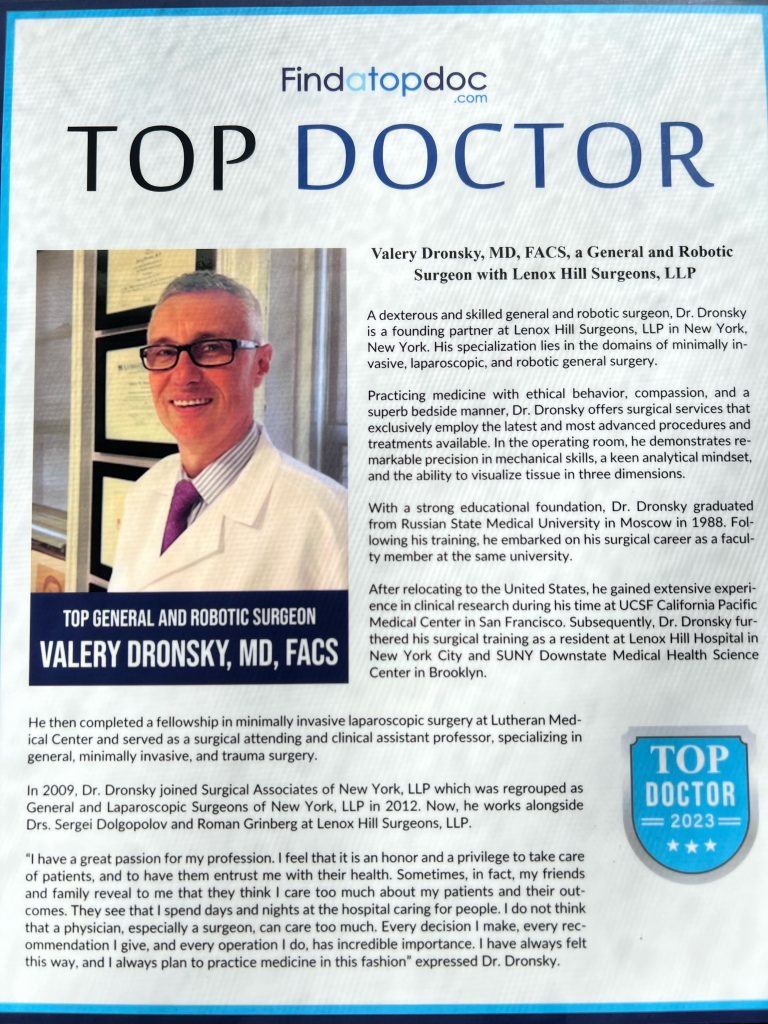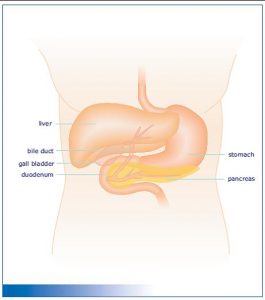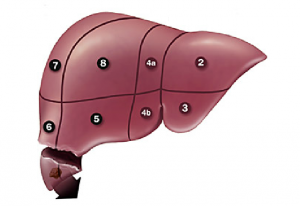CALL TODAY 646-846-1136 | EMAIL
Surgical Experts Dedicated to Improving Lives
At Lenox Hill Minimally Invasive Surgery PLLC, Dr. Valery Dronsky and his staff of medical professionals provide compassionate care with the highest ethical & professional standards. In our state of the art facility, we offer surgical services using only the most cutting edge and current procedures and treatments. We specialize in general surgery, including extensive experience in performing hernia repair surgery. Our expertise is in minimally invasive surgery and robotic surgery. Minimally invasive and robotic surgery often allow patients to experience easier recovery than traditional open surgery. They also allow for more precise and less traumatic surgery. When robotic and minimally invasive surgery is not an option, we are also skilled and experienced in traditional open surgical procedures.
Dr. Dronsky is an experienced and highly skilled surgeon having undergone extensive training in school, residency and fellowships. He practices medicine with ethical behavior, compassion and superb bedside manner. In the operating room he exhibits precision mechanical abilities, analytical thinking and the ability to visualize tissue in three dimensions. These innate and learned skills allow Dr. Dronsky to be one of the most dexterous and skilled professionals in New York City and the Country.
Call us: 646-846-1136
PATIENT TESTIMONIALS
Recent Awards
We are honored and deeply appreciative to have consistently received prestigious awards and recognition year after year, establishing us as one of New York’s foremost hospitals for a wide range of general surgeries, safety measures, specialized procedures, and overall excellence in healthcare. At Lenox Hill Minimally Invasive Surgery, our unwavering commitment lies in delivering exceptional care and unwavering support to our patients, guaranteeing their safety and successful recovery throughout their entire surgical experience.
Hospital Quality Awards
 America’s 50 Best Hospitals Award™ (2023, 2022)
America’s 50 Best Hospitals Award™ (2023, 2022)
Top 1% in the nation for providing the highest clinical quality year over year.

America’s 100 Best Hospitals Award™ (2021)
Top 2% in the nation for consistently delivering clinical quality year over year.

America’s 250 Best Hospitals Award™ (2023, 2022, 2021)
Top 5% in the nation for consistently delivering clinical quality.

Patient Safety Excellence Award™ (2023, 2022)
Top in the nation for providing excellence in patient safety by preventing infections, medical errors, and other preventable complications.
Specialty Clinical Quality Awards

America’s 100 Best Hospitals for Cardiac Care Award™ (2023, 2022, 2021, 2020, 2019)
Superior clinical outcomes in heart bypass surgery, coronary interventional procedures, heart attack treatment, heart failure treatment, and heart valve surgery.

America’s 100 Best Hospitals for Coronary Intervention Award™ (2023, 2022, 2021, 2020, 2019)
Superior clinical outcomes in coronary intervention procedures (angioplasty with stent).

America’s 100 Best Hospitals for Prostate Surgery Award™ (2023, 2022, 2021)
Superior clinical outcomes in prostate removal surgery and transurethral resection of the prostate.
Click to see all of our Healthgrades best doctors awards




Visit our main website at www.LenoxHillMinimallyInvasiveSurgery.com
Blog Posts are Below:
Monthly Archives: March 2018
What to Expect After a Liver Resection
 A liver resection is a surgery to remove part of a patient’s liver. The liver is unique among all the interior organs in the human body in that it is capable of regenerating, meaning as much as 50 per cent of the liver can be removed during a resection; so long as the other half is healthy, the organ will regenerate over time.
A liver resection is a surgery to remove part of a patient’s liver. The liver is unique among all the interior organs in the human body in that it is capable of regenerating, meaning as much as 50 per cent of the liver can be removed during a resection; so long as the other half is healthy, the organ will regenerate over time.
Immediately After Surgery
 To access the liver, doctors need to make an incision in the patient’s belly. When the right side of a liver is removed, the gallbladder needs to be removed to allow access.
To access the liver, doctors need to make an incision in the patient’s belly. When the right side of a liver is removed, the gallbladder needs to be removed to allow access.
It is normal for the patient’s belly to be tender and sore for a little while and painkillers might be prescribed. The pain usually subsides after a few weeks, but during that time patients may also experience nausea, irregular bowel movements, constipation, and diarrhea. A small percentage of patients experience a fever and feel persistently tired, weak, and ill.
It is also common for patients to experience numbness around the wound following liver surgery NYC, but this usually wears off over time, although there will always be some numbness where the incision was made and this is perfectly normal.
Recuperating at Home
 Once you leave the hospital, it is important that you observe certain precautions. Make sure you get plenty of rest. It is during sleep and relaxation that your body does most of its repair work. You might find yourself becoming tired more easily for a little while and you should always rest when you feel tired; try to do some light exercise, such as going for a short walk, every day. Conversely, avoid strenuous exercise until your doctor clears you for it.
Once you leave the hospital, it is important that you observe certain precautions. Make sure you get plenty of rest. It is during sleep and relaxation that your body does most of its repair work. You might find yourself becoming tired more easily for a little while and you should always rest when you feel tired; try to do some light exercise, such as going for a short walk, every day. Conversely, avoid strenuous exercise until your doctor clears you for it.
It is usually a good idea to wait until at least eight weeks, unless your doctor says otherwise, before doing any heavy lifting. You may find that coughing produces a sharp pain around the area of the incision. If so, try holding a pillow over your stomach when you cough to lessen the pain.
Complications
You should dial 911 if you have any of the following symptoms: losing consciousness, respiratory trouble, sudden chest pain and accompanying shortness of breath, or a severe pain in the belly. These could indicate internal problems and are potentially life-threatening.
For further information, drop into one of our liver surgery NYC clinics for a consultation with one of our doctors.
Contact us at 646-846-1136 to schedule an appointment.
Recovering After a Splenectomy
A splenectomy is a surgical procedure where the spleen is removed. Most of you will have heard of a spleen, but surprisingly few people know where it is or what it does. The spleen is located under the left rib cage, near the stomach. It is a small organ, about the size of a human fist, and it plays an important role in mediating the body’s autoimmune response. The spleen stores white blood cells, which are the frontline of the body’s autoimmune defenses, as when the body detects bacteria or infection it releases white blood cells to fight them. It also plays a role in recycling old red blood cells to ensure that the body’s circulatory system remains healthy.
Laparoscopy vs. Open Surgery
There are two types of splenectomy: laparoscopic and open surgery. Open surgery is the traditional approach where a large incision is made for the surgeon to gain access to the necessary area. Laparoscopic surgery, on the other hand, is a form of minimally invasive surgery, also known as keyhole surgery, and is designed to minimize both the immediate discomfort of the operation and the time required to recuperate.
Because of the shorter hospital stay required for spleen surgery NYC, laparoscopic surgeries are often preferred by hospitals, as they require far fewer resources and are cheaper overall. Patients also prefer this method for the shorter recuperation period and much lower incidence of side effects and complications.
Unfortunately, not all patients are suitable candidates for laparoscopic surgery; it depends largely on the patient’s health and the nature of the problem with their spleen.
Recovery Period
 After the surgery, a hospital stay will be required. The duration of this stay is dependant upon the type of surgery the patient has had and how well it went. Those who have had open surgery will require a longer stay, usually a week or so, whereas a laparoscopic patient will require less.
After the surgery, a hospital stay will be required. The duration of this stay is dependant upon the type of surgery the patient has had and how well it went. Those who have had open surgery will require a longer stay, usually a week or so, whereas a laparoscopic patient will require less.
After leaving the hospital, the recuperation period is usually around five weeks. Some patients will be advised to avoid baths during the recuperation period to allow the wound to heal more quickly; showers are usually OK though.
Complications
Fortunately, complications from splenectomies are rare and patients can live full lives without their spleen. However, as the spleen is involved in the body’s autoimmune response, once it is removed the patient will become more susceptible to infections. Of particular concern are those that cause pneumonia, meningitis, and influenza.
For a consultation on the most appropriate form of splenectomy for you, drop into one of our spleen surgery NYC clinics for a consultation. Speak with the best general surgeons in NYC.















